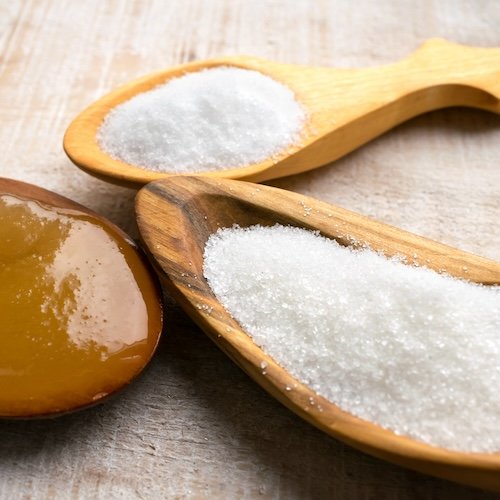Whether you have been diagnosed to have Type 1 or Type 2 diabetes, one thing is certain: you need to watch what you eat. Given that there is no definite cure for diabetes just yet, health experts constantly emphasize the need for a balanced diet and frequent exercise. These lifestyle choices may help lower risk for any of the complications that can be caused by diabetes.
-
Leafy green vegetables. These contain fiber, flavonoids, vitamins C and E, minerals like folate and potassium, and antioxidant compounds like carotenoids that may help reduce diabetes risk.
Plus, leafy greens tend to have little impact on blood sugar levels due to their low amounts of digestible carbohydrates.
Excellent leafy green vegetables people with diabetes can include in their meals are spinach, kale, cabbage, and bok choy.
-
Fresh fruits. Consumption of fresh fruits may help lower someone’s risk for Type 2 diabetes. These contain vitamins and minerals that may help improve overall health. Some fruits like oranges, bananas, grapes, and certain berries also possess polyphenols that may act as antioxidants and help reduce the risk of side effects linked to oxidative stress.
As such, try adding some amounts of the mentioned fruits to your meals. Just make sure to ask your doctor about the ideal amount of fruit you should be consuming that will not drastically increase your blood sugar levels.
Avoid fruit that has been packed or processed as these are typically soaked in a sugary sweet syrup that can lead to increases in blood sugar levels.
-
Fatty fish. Maintaining good cardiovascular health is important if you are diagnosed to have diabetes because it is considered a risk factor for cardiovascular disease. As such, it’s important that you regularly consume heart-healthy omega-3 fats in the form of docosahexaenoic acid (DHA) and eicosapentaenoic acid (EPA).
Omega-3 fats may help reduce triglyceride and bad cholesterol levels, increase high-density lipoprotein (AKA good cholesterol) levels, lessen inflammation in the body, and prevent health issues like abnormal heart rhythm and atherosclerosis or hardening of the arteries.
Fish like salmon, tuna, sardines, and mackerel are good choices of these omega-3 fats. If you do not enjoy seafood that much though, remember that walnuts, chia seeds, flaxseeds, and canola and olive oils also contain some amounts of omega-3 fats you can benefit from.
-
Eggs and lean meats. You still need some forms of protein in your diet if you have diabetes, such as eggs and lean meat. Eggs contain protein, vitamins A and B12, riboflavin, choline, iron, minerals like zinc and calcium, and compounds like carotenoids and lecithin.
One 2018 study highlighted that people who regularly consumed one large egg had better fasting blood glucose levels and as such may lower the risk for diabetes.
Lean meats are also recommended since these options contain less amounts of potentially detrimental fat. Ideal lean meats include beef (sirloin, flank steak, or tenderloin), pork (tenderloin), and poultry like chicken and turkey.
Who says you have to sacrifice flavor and taste if you have been diagnosed to have diabetes? With these food choices, you can make dishes that are not just delicious, but healthy too.
To know more about other dietary options that are best suited for people with diabetes, consult your doctor right away. They can point you to the right direction and work closely with you to create the ideal that will suit your current health status.
References:
https://www.ncbi.nlm.nih.gov/pmc/articles/PMC4718092/
https://www.ncbi.nlm.nih.gov/pmc/articles/PMC6470839/
https://www.ncbi.nlm.nih.gov/pmc/articles/PMC2943062/
https://link.springer.com/article/10.1007/s00394-018-1669-2
https://www.sciencedirect.com/science/article/abs/pii/S0146280617300889 https://pubs.rsc.org/en/content/articlelanding/2018/fo/c8fo00194d/unauth
https://www.tandfonline.com/doi/abs/10.1080/10408398.2013.767221?journalCode=bfsn20
https://link.springer.com/article/10.1023/B:MCBI.0000041863.11248.8d
https://www.ahajournals.org/doi/full/10.1161/CIRCULATIONAHA.114.015176
https://onlinelibrary.wiley.com/doi/full/10.1002/fsn3.853
https://www.cdc.gov/cholesterol/ldl_hdl.htm https://www.niddk.nih.gov/health-information/diabetes/overview/diet-eating-physical-activity
https://ods.od.nih.gov/factsheets/Omega3FattyAcids-Consumer/
https://www.healthline.com/nutrition/16-best-foods-for-diabetics
https://diabetes.org/healthy-living/recipes-nutrition/eating-well/fats
https://www.webmd.com/diabetes/diabetic-food-list-best-worst-foods
https://www.webmd.com/diabetes/fruit-diabetes
https://www.medicalnewstoday.com/articles/meats-for-diabetes
https://www.medicalnewstoday.com/articles/317225#low-gi-vegetables








